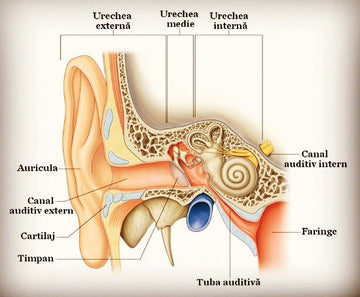
Hearing loss is a common problem that affects millions of people and can have a significant impact on quality of life. Hearing restoration depends on the cause and severity of the loss. Here's a look at the options available:
1. Recovery through medical treatment
- Sudden hearing loss :
- Treatment : Steroids taken orally or injected directly into the ear can reduce inflammation and help restore hearing if administered promptly.
- Example : Sudden sensorineural hearing loss.
- Ear infections :
- Infections of the middle or outer ear can cause temporary hearing loss. Treatment with antibiotics or other specific therapies can lead to full recovery.
2. Medical devices
- Hearing aids :
- They are the most common solution for sensorineural hearing loss caused by aging or noise exposure. They amplify sounds to compensate for the hearing loss.
- Modern devices are adjustable, adapted to each type of hearing loss, and are almost imperceptible.
- Cochlear implants :
- Indicated for people with severe or profound hearing loss who do not respond to hearing aids.
- They transmit electrical impulses directly to the auditory nerve, bypassing the damaged cochlea.
- BAHA (bone anchored hearing systems) :
- Indicated for people with severe conductive hearing loss or malformations of the external ear or ear canal.
3. Surgical interventions
- Repair of the eardrum or middle ear ossicles :
- Hearing loss caused by ruptured eardrums or dysfunction of the ossicular chain (hammer, anvil, stirrup) can be corrected surgically.
- Correction of congenital malformations :
- Interventions for external auditory canal atresia or other structural abnormalities of the external ear.
4. Experimental remedies and treatments
- Gene therapy :
- It is a promising area of research, aiming to repair damaged hair cells in the cochlea. Although still in its early stages, this technology could represent a future solution.
- Hair cell regeneration :
- Research is underway to regenerate lost hearing cells. So far, the results are promising in animals, but application to humans is still a long way off.
5. Alternative and complementary therapies
- Acupuncture :
- Although it does not restore hearing, it can reduce the anxiety associated with tinnitus (ringing in the ears).
- Essential oils and CBD :
- There is no evidence that it can treat hearing loss, but some preliminary studies suggest that CBD oil may help relieve tinnitus.
6. Prevention and protection
- Hearing protection :
- Using earplugs or protective headphones in noisy environments can prevent hearing loss.
- Avoiding improper use of headphones :
- Listening to music at too high a volume for a long time can lead to irreversible damage to hearing cells.
Conclusion
While complete restoration of hearing is only possible in limited cases, there are numerous options that can significantly improve hearing or quality of life for affected individuals. It is essential to consult an ENT specialist or audiologist for proper diagnosis and identification of appropriate treatment.




